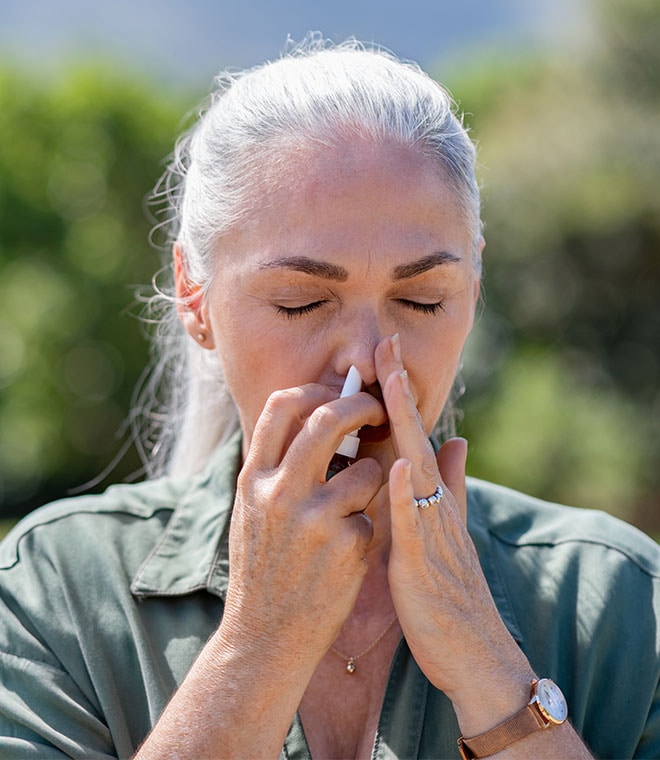Health
Dry mouth: Causes, symptoms and treatments
By Andy Stergachis, PhD, RPh Mar 13, 2025 • 5 min
Dry mouth, also called xerostomia, happens when you do not have enough saliva or spit in your mouth. Saliva is produced by your salivary glands, and it helps keep your mouth moist. Saliva is mostly made of water, but it also contains enzymes that help break down food particles. Without saliva, we would have difficulty swallowing food.
How does dry mouth affect oral health?
It’s common to have dry mouth from time to time. You may experience dry mouth as a result of stress, nervousness or when you are thirsty. Dry mouth can make chewing, swallowing and speaking challenging. If you have dry mouth often, it may even lead to oral health problems.
Saliva helps protect oral health and prevent tooth decay by neutralizing acids made by bacteria and limiting bacteria growth. It also helps by moistening food and washing away particles of food. Inadequate saliva with dry mouth can increase the risk for tooth decay and fungal infections of the mouth.
What are the symptoms of dry mouth?
Symptoms of dry mouth include:
- Dry lips
- Bad breath
- Sticky or dry sensation in the mouth or throat
- Trouble chewing, tasting, swallowing or talking
- Burning feeling in the mouth
- Dry, rough tongue
- Sore throat
- Hoarseness
- Mouth sores
- Infection in the mouth
What are the causes of dry mouth?
Dry mouth can occur for several reasons, including:
- Medications: Certain medications can cause the salivary glands to make less saliva. This includes certain medicines for high blood pressure, depression, anxiety, allergies and Parkinson’s disease. Over-the-counter cold products, antihistamines and decongestants can also lead to dry mouth. Older people are at a greater risk of dry mouth as a result of taking more medicines.
- Cancer treatments: Chemotherapy and radiation of the head or neck can cause dry mouth.
- Medical conditions: Certain health problems including Sjögren’s syndrome, diabetes, human immunodeficiency virus (HIV) and acquired immunodeficiency syndrome (AIDS) are linked with dry mouth.
- Nerve damage: Damage to nerves in the head and neck due to surgery or an injury can cause dry mouth.
- Hormone changes: Hormonal fluctuations that occur during pregnancy and menopause may contribute to dry mouth.
- Snoring or breathing through your mouth: If you snore or breath through your mouth because of a stuffy nose or sleep apnea, it can lead to dry mouth.
- Alcohol, tobacco and recreational drug use: People who drink alcohol, smoke or use recreational drugs have an increased risk of dry mouth symptoms.
Can dry mouth be treated?
Yes, dry mouth can be treated. Treatment for dry mouth depends on the cause and the severity of symptoms.
- If dry mouth is a side effect of medicine you are taking, your healthcare provider may change the dosage or prescribe a different medicine. Your pharmacist can tell you whether or not dry mouth is a common side effect of your medications.
- Saliva substitutes are available without a prescription. Over-the-counter artificial saliva products can help provide short-term relief of dry mouth symptoms by keeping your mouth wet.
- Stay hydrated by drinking more water or sucking on ice chips
- Avoid drinks that contain caffeine, such as coffee and tea, since it can dry out the mouth
- Stay away from salty or spicy foods because they can irritate your mouth
- Don’t smoke or drink alcohol because it can dry out and irritate the mouth
- Use sugar-free gum and sugar-free candy to stimulate saliva flow
- Consider using a humidifier, especially at night, to help moisten the air while you sleep
While occasional dry mouth may only be temporarily bothersome and resolve on its own, contact your healthcare provider and dentist if your symptoms persist or if you believe you have a mouth infection.
Updated March 2025.




